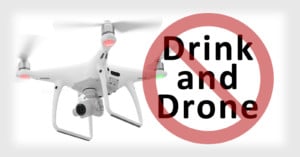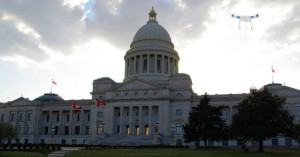
EU’s Landmark AI Act Has Been Approved, US Far Behind
After European Union lawmakers reached an agreement on the EU's landmark EU AI Act in December, the law cleared its last significant hurdle, achieving European Parliament approval earlier today.

After European Union lawmakers reached an agreement on the EU's landmark EU AI Act in December, the law cleared its last significant hurdle, achieving European Parliament approval earlier today.

World-class chipmaker NVIDIA became the first company in its industry to reach a market cap above $2 trillion. This remarkable high water mark capped off an incredible week for NVIDIA, which posted record revenue last week.

The right for consumers to repair their own devices rather than being chained to the whims of manufacturers has been a long battle, typically fought by the companies themselves. But now it’s Scientologists that are issuing protests.

A bipartisan bill has been introduced in the United States Senate that, if passed, would require all children under the age of 18 to receive parental consent to use social media and would forbid the use of algorithms on that age group.

Senator Elizabeth Warren has reiterated her stance that consumers should not have to continue to buy new and different charging cables for their mobile devices.

A group of United States senators has written a letter to the U.S. Commerce Department advocating that the country should follow the European Union's decision to force all electronics manufacturers to adopt a common charging cable.

The New York state legislature has passed the Fair Repair Act, the first "right to repair" bill that requires all manufacturers who sell "digital electronic products" to make tools, parts, and instructions for repair available.

Senator Josh Hawley has introduced a bill that would cap copyright on intellectual property to a maximum of 56 years, with no extensions. If passed, the bill would also retroactively apply to existing copyrights.

A new bipartisan bill has been introduced into the United States Senate that takes aim at algorithmic-based feeds like those on Facebook and Instagram. The bill would direct two government agencies to investigate ways to add friction to content sharing.

A bipartisan group of House lawmakers has introduced a new bill that would make it mandatory for services that use algorithms to serve content to offer a version that allows users to turn that feature off.

A new bill proposed by four lawmakers aims to strip Section 230 protections from algorithm-based recommendations like Facebook's newsfeed and hold social media companies accountable for what is fed to its users.

The European Commission, which is the executive arm of the European Union (EU), has announced plans to force electronics manufacturers, from smartphones to handheld video game consoles, to use USB-C in an effort to reduce waste, and Apple is not happy about it.

Heads up, photographers: there has just been a monumental change to the way you can defend your copyrighted photos from infringement. A copyright small claims system has arrived in the United States to help you collect compensation from those who misuse your work.

Flying a drone has become increasingly convoluted over the years, with the number and diversity of regulations growing to incredibly complicated levels. Surfshark has compiled data from countries around the world and produced these stellar visuals to help show where it's still legal to take to the sky.

California Governor Gavin Newsom has signed a new "Kobe Bryant" law that makes it illegal for first responders to shoot unauthorized photos of dead bodies at the scene of accidents and crimes.

The CASE Act, a major piece of legislation that would introduce a small claims court for copyright infringement cases, has officially been passed by Senate Judiciary Committee, clearing the way for a full vote on the Senate floor.

Just this past week, the European Parliament’s Committee on Legal Affairs approved amendments to EU’s Directive on Copyright in the Digital Single Market, which includes the infamous Article 13.

You've heard of drunk driving, but what about drunk droning? That's what's on track to become a new crime in the state of New Jersey after lawmakers voted to approve the new bill.

Photographers in Serbia are protesting and raising awareness this week in response to a new proposal in parliament that threatens the basic copyright of their photos.

California governor Jerry Brown has vetoed a Senate bill that sought to make it illegal to fly a drone less than 350 feet above someone's private property without their permission.

A Texas lawmaker recently attracted death threats after proposing a law that would make it illegal for photographers to take pictures of police officers from within 25 feet of them. Colorado is moving in the opposite direction.
The state is considering several bills that would increase police oversight, and one of the bills outlines punishments for police officers who interfere with people who are lawfully using their cameras.

Update: There have been new developments. Please see below.
There's a new bill passing through the Arkansas State Legislature that may be concerning to photographers who operate camera drones. The bill is titled, "Concerning The Use Of An Unmanned Vehicle Or Aircraft That Captures Images; To Create The Criminal Offenses; To Provide For Civil Liability," and it criminalizes certain camera drone usage and the possession of photos captured during that usage.

A new "Ansel Adams Act" introduced in Congress could have big implications on photographers' rights across the United States. The bill aims to "restore the First Amendment rights of photographers" by removing restrictions on taking photos in public places.

There's a new law in the works in The Philippines that may soon make it illegal to photograph strangers without their permission... even if they just appear by chance in the background of your photos. According to a government official, even selfies with people appearing in the background would be a no-no.

Paparazzi working in the state of Hawaii might have to pack their bags and move back to the mainland. That's because a new bill requested by Aerosmith lead and part-time Maui resident Steven Tyler may soon ban celebrity photography in the 50th state all-together.

This looks like a screenshot of a satirical article by The Onion, but …

A Lancome advertisement featuring Julia Roberts caused a stir back in July after it was banned by …

Tennessee Governor Bill Haslam signed a new law last week that makes it …